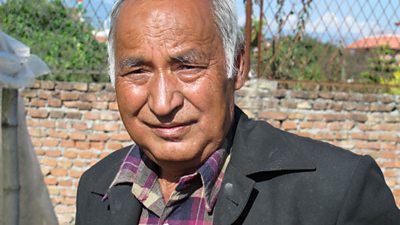A single episode of Sajha Sawal achieved something that the Agriculture Ministry had not been able to in several years.
Sajha Sawal’s presenter Narayan Shrestha remembers how Dr Kedar Budhathoki's appearance on the show boosted tomato production and people’s livelihoods across the country.
“I present Sajha Sawal, a weekly TV and radio panel show that offers the opportunity for the people of Nepal to participate in debate.
Those who have been traditionally overlooked or ignored are encouraged to speak up, use their voices, and share ideas or ask questions about issues that affect them.
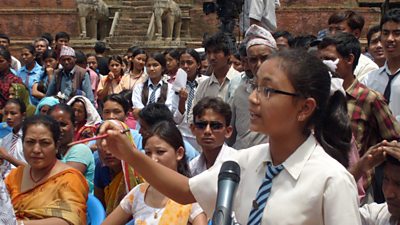
Pioneering techniques
One week, we broadcast an episode from the farm of Dr Kedar Budhathoki in Nakkhu, Lalitpur. A former government scientist, Dr Budhathoki had been a promising but little known horticulturalist before retiring to his tomato farm. That all changed after he appeared on Sajha Sawal.
Dr Budhathoki explained his techniques to improve yields and the economics of how to boost production.
The audience response was overwhelming. Nepal, a country that had been importing tomatoes by the tonne suddenly woke up to new opportunities.
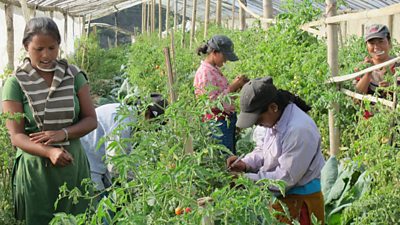
The programme's postbag was huge and knowledge spread quickly. It even attracted unemployed people to the business and transformed thousands of farmers' livelihoods.
The impact of this one programme appearance was profound – Nepal is now not only self-sufficient but also exports tomatoes.
Dr Budhathoki, himself a government official for many years, said: "A single episode of Sajha Sawal has achieved something that the Agriculture Ministry had not been able to achieve in several years.""
This story was compiled by ±«Óãtv Media Action's Kirsty Cockburn who was in conversation with Narayan Shrestha. Watch Narayan talking about Dr Kedar's story in this film.
External links
Stories of change
-
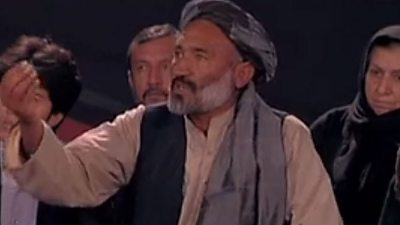
Abdul Bari Bawar, Afghanistan
After taking part in national debate show Open Jirga, community elder Abdul took the format home with him and persuaded his local radio station to make their own version for southern Afghanistan. -
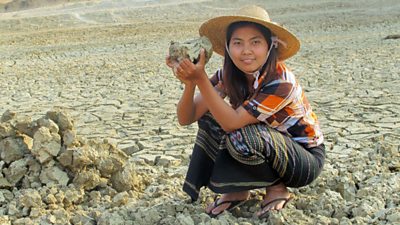
Kan At village, Myanmar
After hearing an episode about water conservation, young listeners of radio show Lan Lat Kyiar Sin (Bright Young Stars) were inspired to take action – rebuilding their village pond so that now it's ready to provide a reliable water supply all year round. -
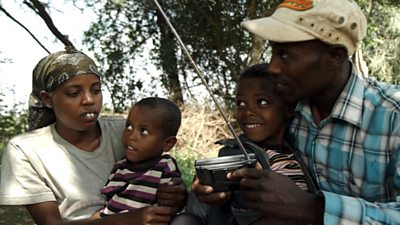
Dugo Boru and Aye Bejiga, Ethiopia
Dugo Boru wouldn't allow his pregnant wife Aye Bejiga to visit a health centre. But the radio programme Biiftuu Jireenyaa helped him change his mind. -
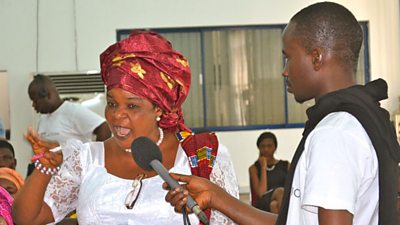
Oluchi Atu, Nigeria
Due to a poor electricity supply, trader after trader was leaving Lugbe AMAC market in Nigeria’s capital city Abuja. But then the chair of the market appeared on an episode of radio show Talk Your Own – Make Naijia Better. She asked the minister of power to help and a week later a new transformer was installed. -
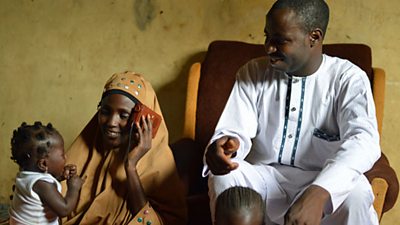
Yahaya and Salamatu, Nigeria
Yahaya Abdul-Rahman and his wife Salamatu never miss an episode of radio health programme Ya Take Ne Arewa. Thanks to the Nigerian show, they've learned the importance of antenatal care, birth spacing and how to treat their water to make it safe to drink. -
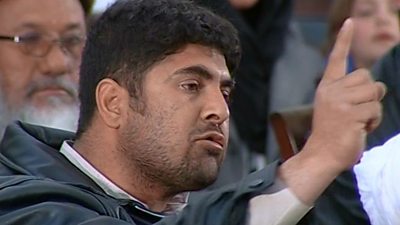
Asadullah Kamawi, Afghanistan
32-year-old disabled man Asadullah held President Hamid Karzai to account on TV debate show Open Jirga – and was invited to discuss his views on disability issues with Afghanistan’s entire cabinet. -

Dr Kedar Budhathokii, Nepal
Farmer Dr Kedar Budhathoki shared his pioneering techniques on Nepal’s TV and radio debate show Sajha Sawal – and transformed people’s livelihoods across the country. -
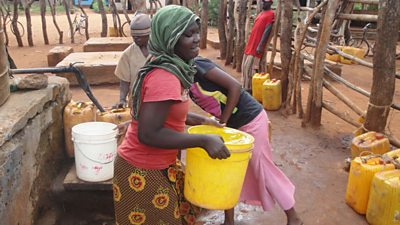
Mwera village, Tanzania
When their water supply was cut off due to a local dispute, the villagers of Mwera on the coast of Tanzania contacted their local radio station to ask for help. Journalist Mohammed Hammie tells how his report helped to resolve the problem - and turned the water back on.
